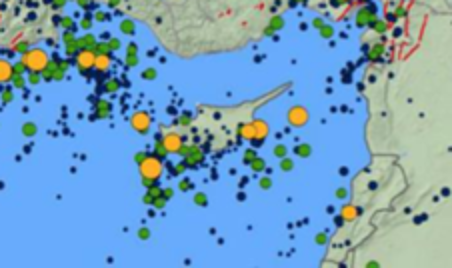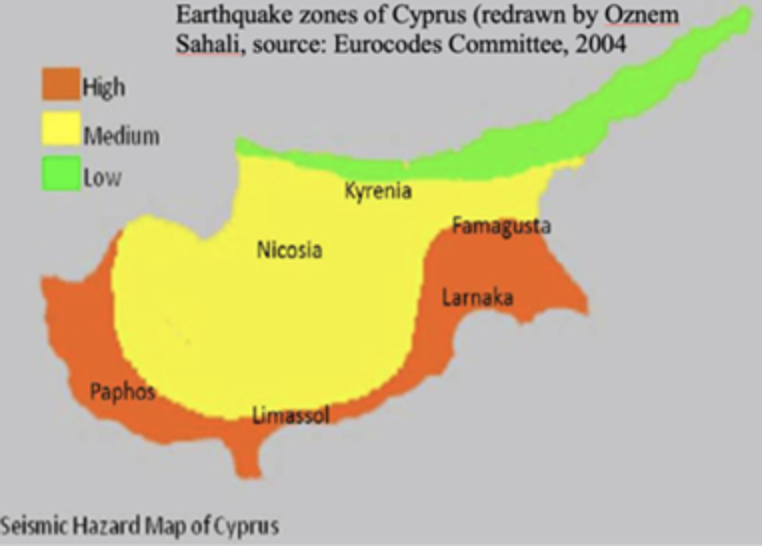
Cyprus, located in a zone of tectonic activity, has faced the consequences of earthquakes since ancient times. Although the frequency of major earthquakes here is lower than in neighboring regions, such events remain a critical factor that demands attention.
The most destructive earthquakes in the island’s history occurred in the 4th century AD: in 332 and 342, completely destroying the ancient cities of Salamis and Paphos. In modern history, the most devastating earthquake occurred in 1953 with a magnitude of 6.5. It resulted in 40 deaths, over 100 injuries, and left approximately 4,000 residents homeless across 158 settlements. However, the introduction of anti-seismic building standards in 1994 significantly reduced the damage caused by subsequent earthquakes. For instance, the 1996 earthquake (magnitude 6.8) claimed only two lives, while the 2022 event (magnitude 6.1) caused no casualties or significant damage.
Seismologists actively study the movement of tectonic plates around Cyprus using GPS data, which helps identify high-risk areas. Most seismic activity is concentrated along the fault line stretching from Paphos to Famagusta. However, predicting the exact time and location of the next earthquake remains impossible. Scientists can only estimate its probability over the coming decades.
Scientific reports, including studies by Çatlıoğlu and Eyidogan, provide seismic hazard and soil condition maps. Yellow and red zones on these maps indicate areas with weakened soils, where the impact of earthquakes could be more severe. Additionally, Cyprus faces a tsunami risk due to its proximity to underwater fault lines.
Although Cyprus has been fortunate to avoid catastrophic earthquakes in recent decades, preparedness remains crucial for safety. Key measures include:
- Adherence to anti-seismic building standards. Buildings constructed after 1994 already comply with earthquake-resistant requirements.
- Public education and awareness. Residents and visitors should know how to act during seismic activity.
- Emergency supplies. Having a stockpile of water, food, and medical supplies can save lives during a crisis.
- Evacuation plans. A clear action plan can minimize panic and reduce risks to life.

Possible Scenarios
Experts have differing opinions on the potential future earthquake in Cyprus. If the magnitude of the next earthquake reaches 7.0–7.6, it will be classified as a major event. However, given modern building standards and past experience, the consequences may be significantly less severe than those of 1953.
Conclusion
Cyprus is a region with a relatively low frequency of major earthquakes, but this should not lead to complacency. History reminds us that preparedness and preventive measures can save thousands of lives. The island’s residents and authorities continue to develop safety strategies, making Cyprus a model of resilience and a thoughtful approach to living in a seismically active zone.




